How To Remove Deep Blackheads Safely And Effectively
Salicylic acid and retinoids can be the ultimate solution to those pesky blackheads.
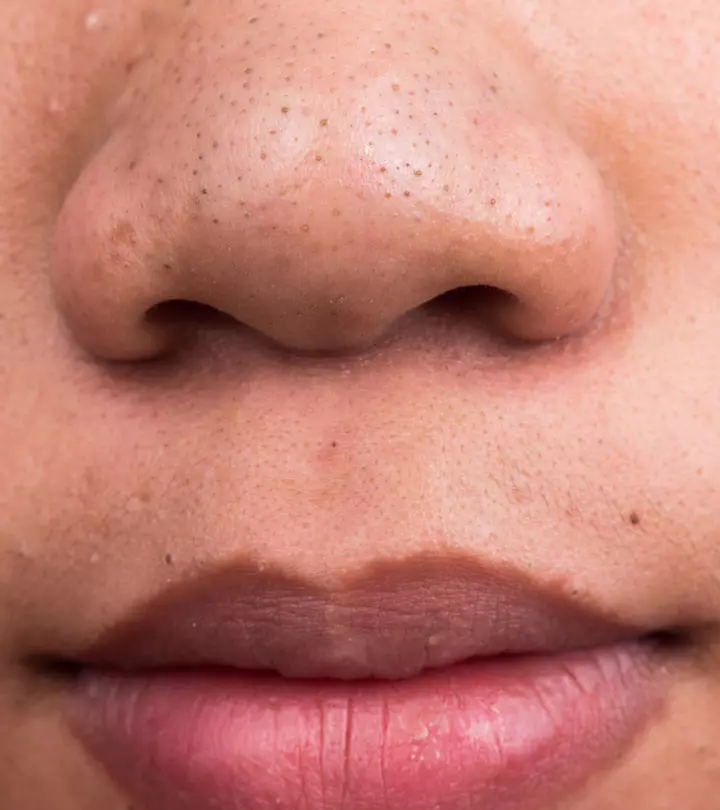
Image: iStock
A deep blackhead can stick out like a sore thumb, especially when you have an important occasion where you want to look your best. So, it is completely understandable that you are trying to figure out how to remove deep blackheads. But, a lot of popular methods like using honey, egg whites, pore strips, or Epsom salt either have no scientific basis or there is not enough research to establish their safety.

Vee, a blogger, shared her struggle with blackheads and the solution that brought her success. After noticing blackheads on her nose, she expected them to disappear naturally, given her typically good skin. Then, she decided to take matters into her own hands, “I was bored and decided, hey, let me try these strips, and OMG the results were amazing (i).”
There is no need to worry though. There are some proven ways in which you can get rid of deep blackheads and even prevent them from coming back. And, those are exactly what we are going to look at here.
In This Article
What Is A Deep Blackhead And How Is It Different From A Regular Blackhead?
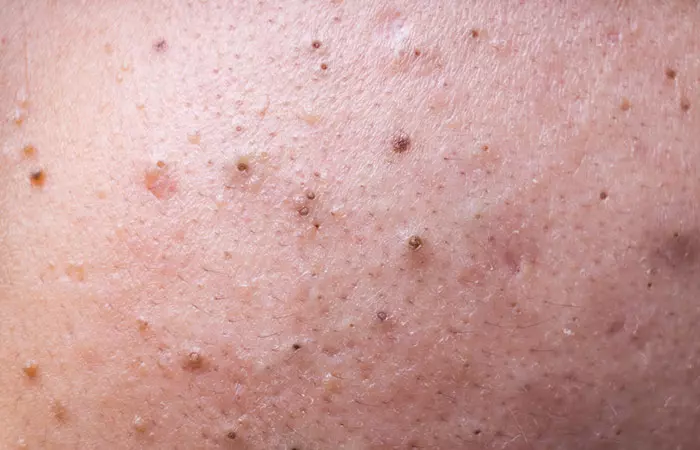
A deep blackhead is a type of acne that is characterized by its blackish appearance. It is essentially a deeply embedded, hard plug made of skin debris and sebum that blocks the pores on your skin. A deep blackhead is typically hard to remove as it is a result of waste accumulated over a long period of time; deep blackheads can remain on the skin for years if left untreated.
A regular blackhead, in contrast, has not yet hardened and may be more easily removable. In other words, a regular blackhead is a predecessor of a deep blackhead.
Blackheads, both deep and regular, may form anywhere that you have pores. However, these most commonly appear on the facial T-zone — the forehead, nose, and chin as these areas are highly concentrated with sebaceous glands. Occasionally, you can find blackheads on the neck, chest, back, shoulder, and conchal bowl (the rounded bowl-shaped part) of the ears.
Now that we know what deep blackheads are and where they can be spotted, let’s see how they are formed.
Key Takeaways
- Characterized by a blackish appearance, a deep blackhead is a type of acne.
- To avoid it, incorporate salicylic acid into your skincare routine, or use retinoids.
- See a doctor if you experience fever, swollen blackheads, or sore blackheads.
What Causes Deep Blackheads And How Do They Form?
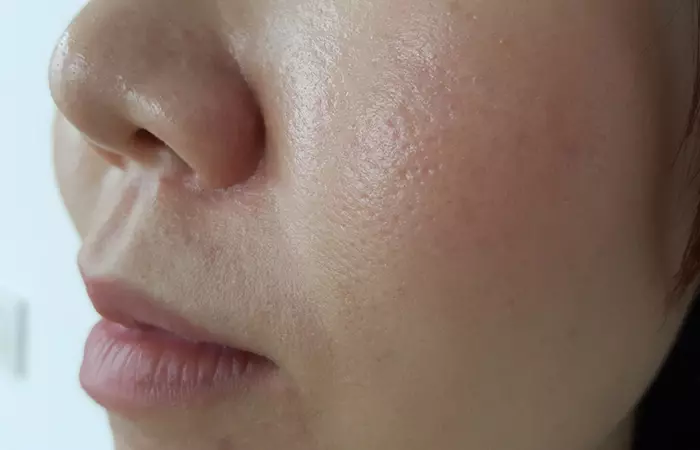
As with other kinds of acne, excess production of sebum is primarily responsible for the formation of blackheads (1). It may occur due to various factors, such as poor skincare routine, hormonal changes, and an increase in fat or carbohydrate consumption (2). When the excess oil, along with dead skin cells, accumulates within the pores, it gets clogged up with a plug. In the case of a blackhead, the clogged pore opens up on the surface of the skin. When the built-up content comes in contact with the air, it is oxidized and turns black (3).
Deep blackheads are very stubborn, and you may have a tough time getting them out with your regular exfoliation process. Prodding and pricking are not advised as that is rarely effective and can cause more damage to your skin.Read on to understand why it’s best not to pop deep blackheads.
Popping Deep Blackheads: Is It Safe?
Avoid popping deep blackheads and get a healthcare professional to extract them. If you try to pop or extract them at home, it may:
- Introduce bacteria into the skin pore, cause redness and inflammation area, and may lead to an infection or further skin issues.
- Damage the area, causing wounds, which may leave behind scars and dark spots.
Moreover, squeezing deep blackheads with nails may push them deep into the skin and lead to irritation. Aestheticians and medical professionals use extraction tools to safely remove the blackheads. Therefore, professional guidance is recommended to prevent complications.
However, they can be conquered and you can get rid of them. Read on for some tips and tricks on how to remove deep blackheads safely.
Best Techniques To Remove Deep Blackheads
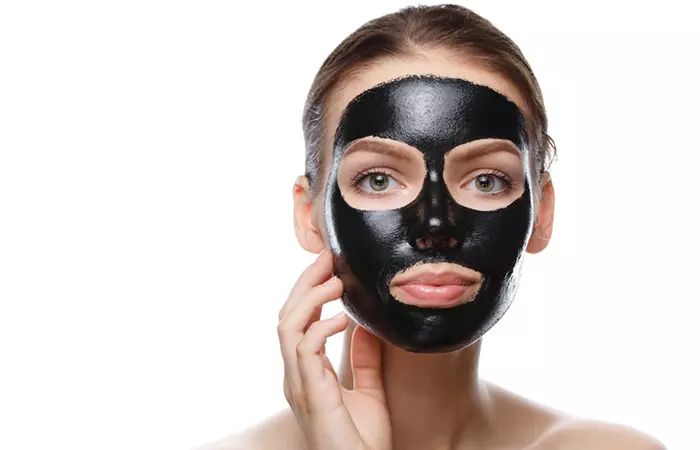
- Incorporate Salicylic Acid Into Your Skincare Routine
Salicylic acid is a naturally occurring chemical substance that is used to treat acne in the form of topical agents or chemical peels.
Well known for its exfoliative actions, it can not only help remove dead skin cells but also has anti-inflammatory and anti-bacterial properties (4).
Salicylic acid may be effective for deep blackhead removal as it is oil-soluble and able to penetrate deeper into the skin than other water-soluble acids used in skincare routines. So, along with removing surface-level skin debris, it may clear up excess sebum deep in the pores and help to unclog the deep plugs in blackheads. It also dries out dead skin cells and prevents them from clumping together, reducing the formation of potential blackheads on your face (4).
You can use a moisturizer, toner, face wash, or an exfoliant containing salicylic acid as part of your regular beauty and skincare routine. Consult your dermatologist if you wish to get your deep blackheads treated with a chemical peel as it may contain salicylic acid in very high concentrations.
- Look To Retinoids
Retinoids may prevent the skin cells from clumping together and manage sebum levels.
Most importantly, they can improve skin cell turnover. That means that they may help with quicker healing and reduced discoloration of the skin after you have got your blackheads out. Retinoids may also help with collagen formation and leave your skin looking healthier (5).
So, if you’ve had a deep blackhead for years, you can use over-the-counter topical drugs containing retinoids for treating your blackheads. However, prescription retinoids are generally stronger and may be more effective than the over-the-counter variants, so do not hesitate to reach out to your dermatologist.
- Use Benzoyl Peroxide While Treating Your Blackheads
Benzoyl peroxide has potent anti-inflammatory properties and may be helpful for managing inflammation around infected blackheads or treating the inflammation that may accompany blackhead extraction. It may also be a useful tool for removing the buildup of dead skin cells and excess sebum (1).
Benzoyl peroxide is available with varying concentrations in different forms like gels, body wash, face wash, face foam, acne cream, and lotion. You can use one or more of these as per your requirement, but don’t overdo it as it may lead to excessive dryness which can be counterproductive (6).
- Use Tea Tree Essential Oil
Using tea tree oil for blackheads can be a decent alternative approach. In a study comparing tea tree essential oil and benzoyl peroxide for the treatment of acne, it was found that both are equally effective. It was also noted, however, that tea tree oil worked slower than benzoyl peroxide (7). More studies are warranted for the use of this natural oil as a treatment for deep blackheads, but it is well-tolerated, so there is no harm in trying.
You can use steam inhalation with tea tree oil to help loosen the pores and slough off some debris and excess oil.
 Quick Tip
Quick TipOther treatment methods include DIY face masks for blackheads, chemical peels, and extractor tools. However, you must consult a dermatologist for expert advice. This brings us to the next question— when should you go to your dermatologist?
When Should You See A Dermatologist?
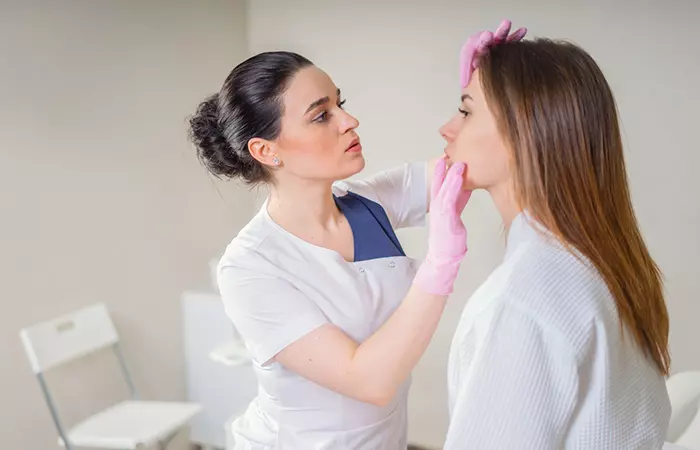
At-home treatments for removing deep blackheads may sometimes be insufficient, especially if your deep blackhead is really deep and hardened. They are also removable, but since using extraction tools or chemical peels by yourself is not recommended, you may need to contact your dermatologist. Another situation would be if you suspect that your deep blackheads are infected. Infections can occur if you prick or prod your blackheads and break the skin in the process. Signs of infection may include:
- Fever
- Swollen blackheads
- Sore blackheads
Even with a good dermatologist, the process of removing deep blackheads may sometimes be unpleasant. To avoid or lower your risk of developing deep blackheads again, you can follow certain preventive guidelines.
How To Prevent Deep Blackheads?
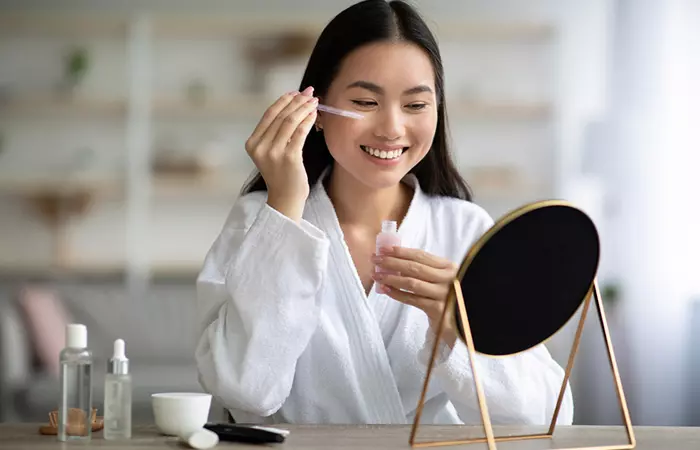
Some people may be more prone to developing deep blackheads than others. There are a variety of factors that play a role in the formation of deep blackheads and a few of them are in your control. Here are some of the simplest ways to keep deep blackheads at bay:
- Follow a skincare routine that includes cleansing, exfoliating, and moisturizing. Cleanse your face at least twice a day followed by adequate moisturization. Exfoliate 1-2 times a week to prevent clogged pores.
- Choose products that suit your skin type.
- Drink plenty of water.
- Address blackheads and whiteheads as soon as they appear.
- Follow a diet high in fruits, nuts, and vegetables and low in processed carbohydrates, and added sugars.
Apart from this, you can also use a homemade clay mask once a week. Simply mix one tablespoon of bentonite or kaolin clay with a few drops of water. Apply the mask to your face, focusing on areas with blackheads. Let it sit for 10-15 minutes until it dries. Rinse it off with warm water and pat your face dry. Then apply a gentle moisturizer to keep your skin hydrated. This clay mask will help draw out impurities and excess oil from your pores (8). This, in turn, may help prevent blackhead formation.
 Quick Tip
Quick TipIn a nutshell, deep blackheads are a type of acne characterized by dilated and clogged pores with deeply embedded plugs made up of skin debris and sebum. You may be more prone to getting deep blackheads if you have oily skin. Despite being stubborn and tough to remove, deep blackheads can be removed using a few effective techniques like topical application of retinoids or salicylic acid or through medical procedures like extractions. Luckily, a good skincare routine and healthy lifestyle choices can help you prevent deep blackheads from developing on your skin.
Tips For Blackhead Removal Based On Skin Type
Blackheads can be stubborn, especially when they are deep and persistent. Understanding your skin type is key to effectively removing deep blackheads. Let us break it down by skin type to keep your pores happy and clear.
1. Oily Skin
People with oily skin are more prone to deep blackheads due to excess sebum production that clogs pores.
Tips:
- Use products with salicylic acid to dissolve oil deep within the pores.
- Incorporate clay masks, bentonite, or kaolin once or twice a week to absorb excess oil.
- Look for non-comedogenic, oil-free moisturizers to prevent further clogging.
- Double cleanse every evening to remove makeup, dirt, and oil buildup.
2. Dry Skin
Dry skin can still get blackheads, especially when dead skin cells build up and trap oil and dirt in the pores.
Tips:
- Use a gentle exfoliant or a mild scrub once a week to slough off dead skin cells.
- Avoid alcohol-based toners or harsh cleansers that can dry your skin further.
- Hydrate with a rich, non-comedogenic moisturizer to maintain skin barrier function.
- Do not overwash. Stick to cleansing twice a day with a hydrating face wash.
3. Combination Skin
This skin type has both oily and dry areas, typically an oily T-zone – forehead, nose, chin, and dry cheeks.
Tips:
- Multi-mask using a clay mask on oily areas and a hydrating mask on dry zones.
- Use a balanced cleanser that does not strip your skin but helps remove oil.
- Apply lightweight, hydrating moisturizers to the face and spot-treat blackhead-prone areas with salicylic acid.
- Exfoliate strategically 2-3 times a week on the oily zones and once a week on the dry zones.
4. Sensitive Skin
Sensitive skin needs a careful and minimalistic approach to avoid irritation while tackling blackheads.
Tips:
- Choose fragrance-free, gentle cleansers and exfoliants.
- Avoid physical scrubs or tools that could damage your skin barrier.
Infographic: Ingredients To Reduce Deep Blackheads
If you have blackheads that just won’t go away, efficient agents like retinol, salicylic acid, and benzoyl peroxide may help deal with them. Achieving clear, radiant skin is no longer an elusive dream! Incorporate these ingredients into your skin care regimen and follow a few simple steps to prevent the recurrence of blackheads. Check out the infographic below for more information.
Some thing wrong with infographic shortcode. please verify shortcode syntaxFrequently Asked Questions
Do deep blackheads leave holes in your face?
After removal, blackheads may leave behind marks which look like holes on the skin. These are essentially enlarged pores which got deepend and widened with buildup. These holes or enlarged pores usually heal with time and shrink back to their original size.
How does baking soda remove deep blackheads?
Anecdotal evidence suggests that making a paste of baking soda and toothpaste and applying it on the face may help remove blackheads along with dead skin cells and buildup. However, there is no scientific evidence to suggest that baking soda can help remove deep blackheads.
Is it better to pop blackheads or leave them?
Popping blackheads may lead to scarring, skin irritation, and infections. On the other hand, leaving them be may cause blackheads to get embedded even further and make removal a more challenging task. The recommended course of action is to apply safe and proven home remedies or consult a dermatologist.
Illustration: How To Remove Deep Blackheads Safely And Effectively
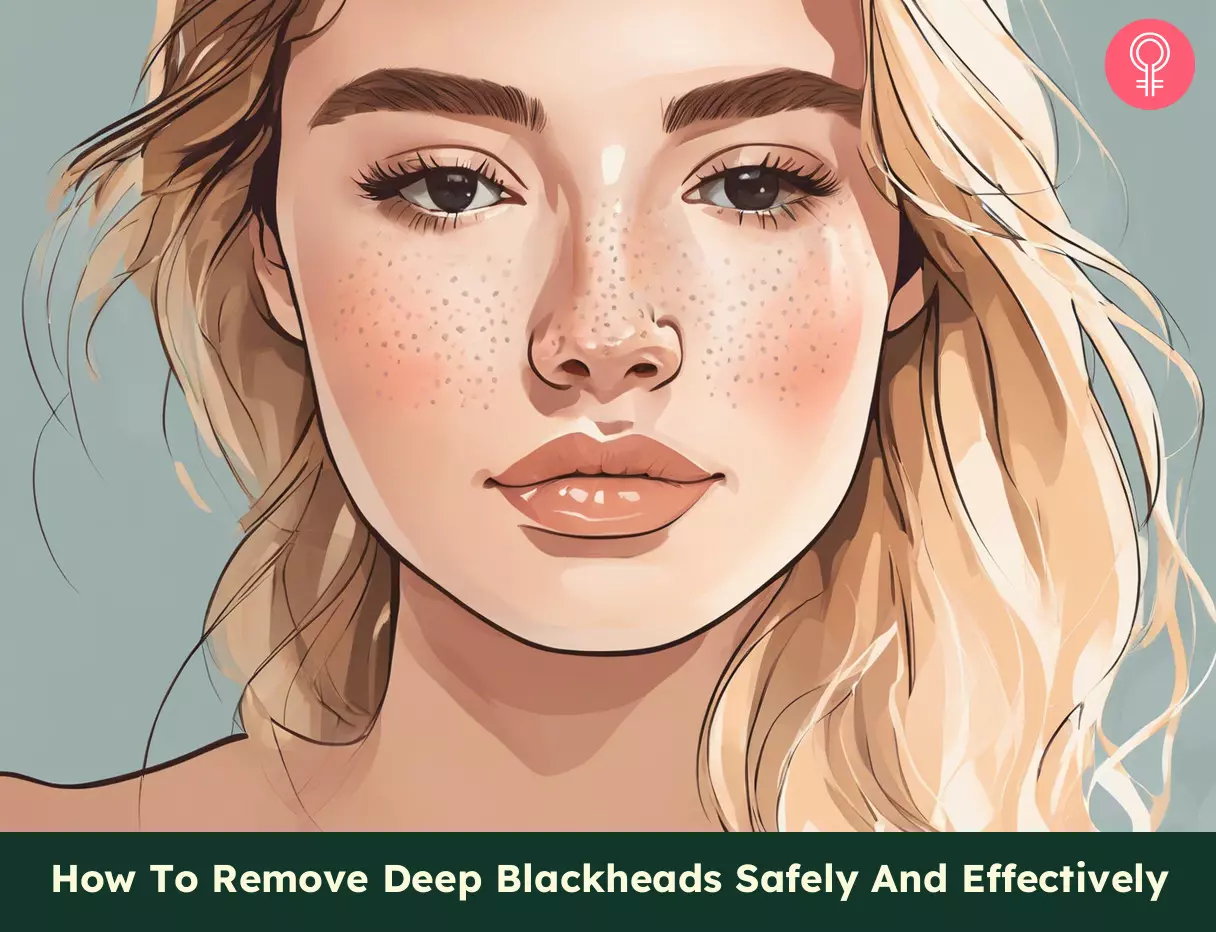
Image: Stable Diffusion/StyleCraze Design Team
Learn how to remove blackheads and whiteheads, their causes, treatments, and home remedies along with some expert advice from a dermatologist. Watch the video below to learn how to get clear skin!
Personal Experience: Source
StyleCraze's articles are interwoven with authentic personal narratives that provide depth and resonance to our content. Below are the sources of the personal accounts referenced in this article.
i. Having trouble getting rid of Blackheads? heres how I got rid of mine [pics inside]https://heaartoffashion.wordpress.com/2015/01/12/having-trouble-getting-rid-of-blackheads-heres-how-i-got-rid-of-mine-pics-inside/
References
Articles on StyleCraze are backed by verified information from peer-reviewed and academic research papers, reputed organizations, research institutions, and medical associations to ensure accuracy and relevance. Read our editorial policy to learn more.
- A review of diagnosis and treatment of acne in adult female patients
https://www.ncbi.nlm.nih.gov/labs/pmc/articles/PMC5986265/ - An update on the role of the sebaceous gland in the pathogenesis of acne
https://pmc.ncbi.nlm.nih.gov/articles/PMC3051853/ - Systematic review of the epidemiology of acne vulgaris
https://idp.nature.com/transit?redirect_uri=https%3A%2F%2Fwww.nature.com%2Farticles%2Fs41598-020-62715-3&code=f29e0b4e-7326-4310-b38c-28646a620686 - Salicylic acid as a peeling agent: a comprehensive review
https://www.ncbi.nlm.nih.gov/pmc/articles/PMC4554394/ - Why Topical Retinoids Are Mainstay of Therapy for Acne
https://www.ncbi.nlm.nih.gov/labs/pmc/articles/PMC5574737/ - Benzoyl Peroxide
https://www.ncbi.nlm.nih.gov/books/NBK537220/ - A comparative study of tea-tree oil versus benzoylperoxide in the treatment of acne
https://pubmed.ncbi.nlm.nih.gov/2145499/ - Comprehensive assessment of the efficacy and safety of a clay mask in oily and acne skin
https://pmc.ncbi.nlm.nih.gov/articles/PMC10626287/
Read full bio of Dr. Saba
Read full bio of Sanchari Bhattacharya
Read full bio of Ramona Sinha
Read full bio of Monomita Chakraborty





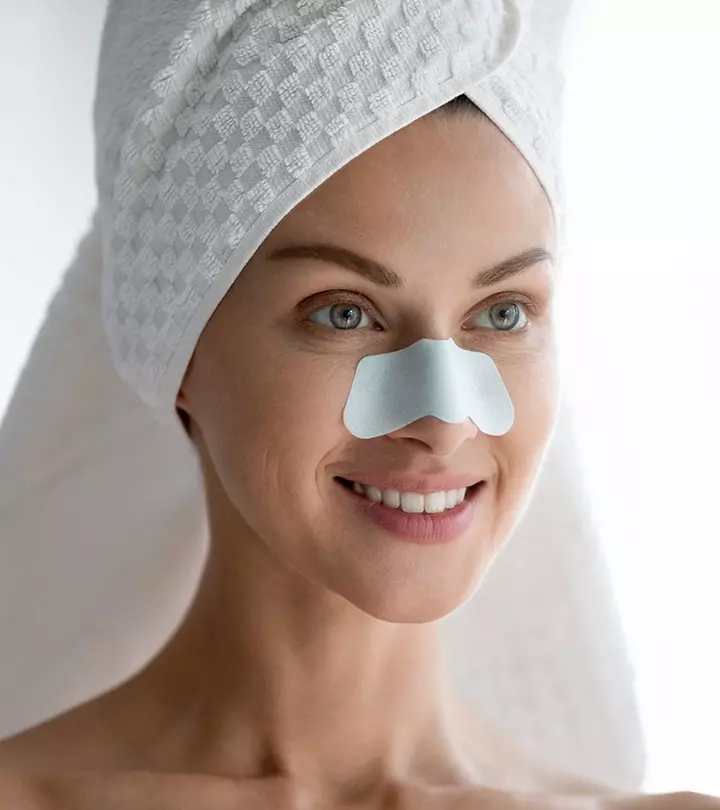
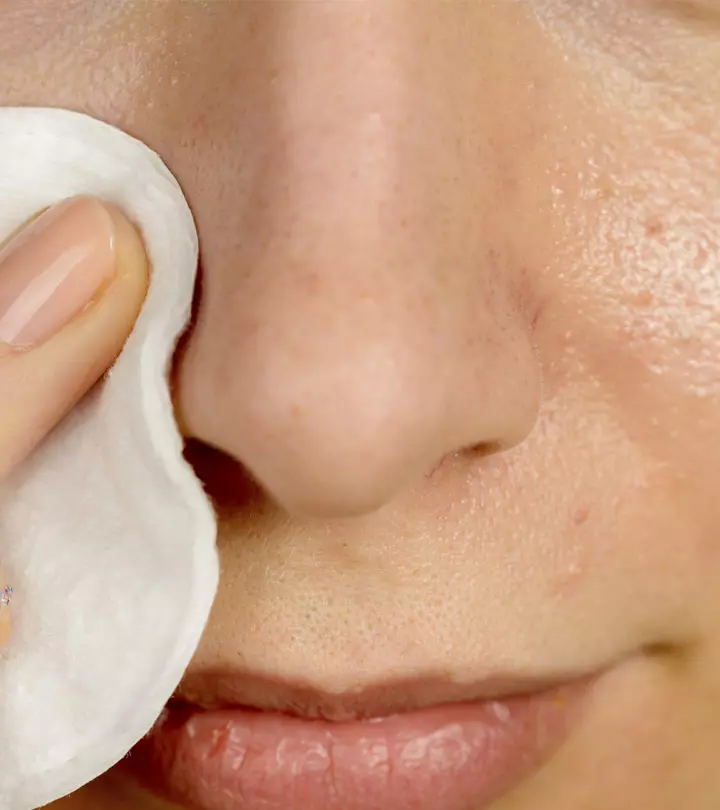
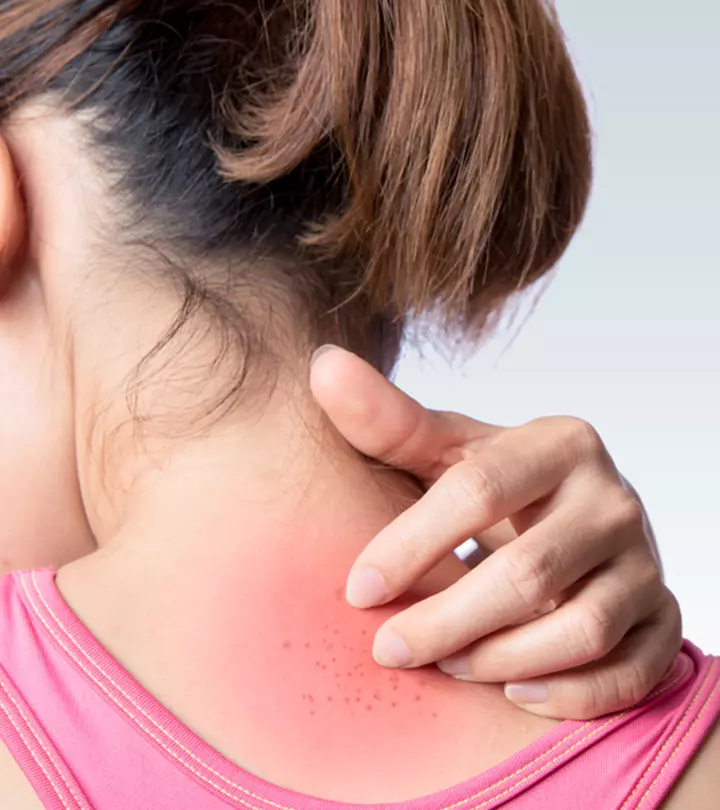
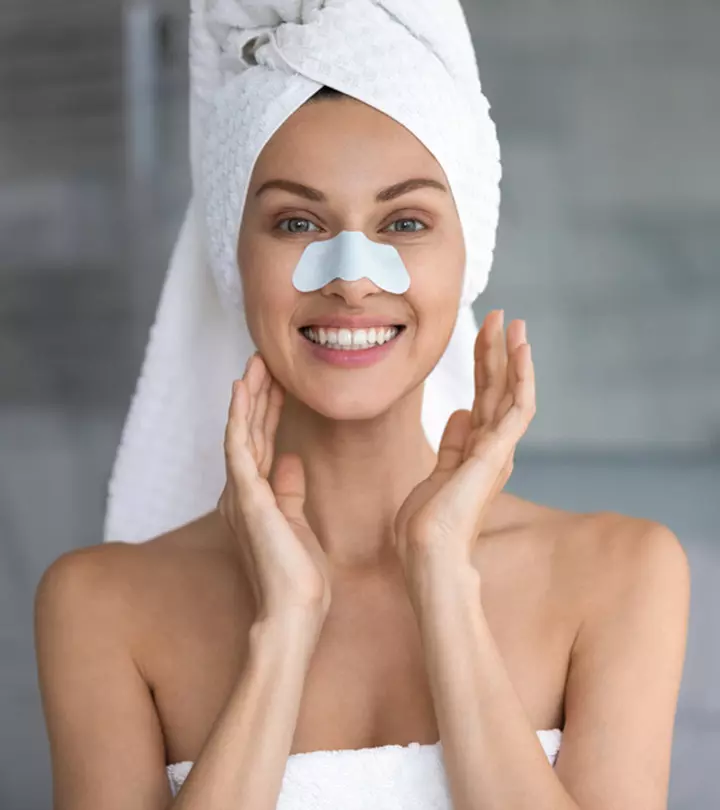


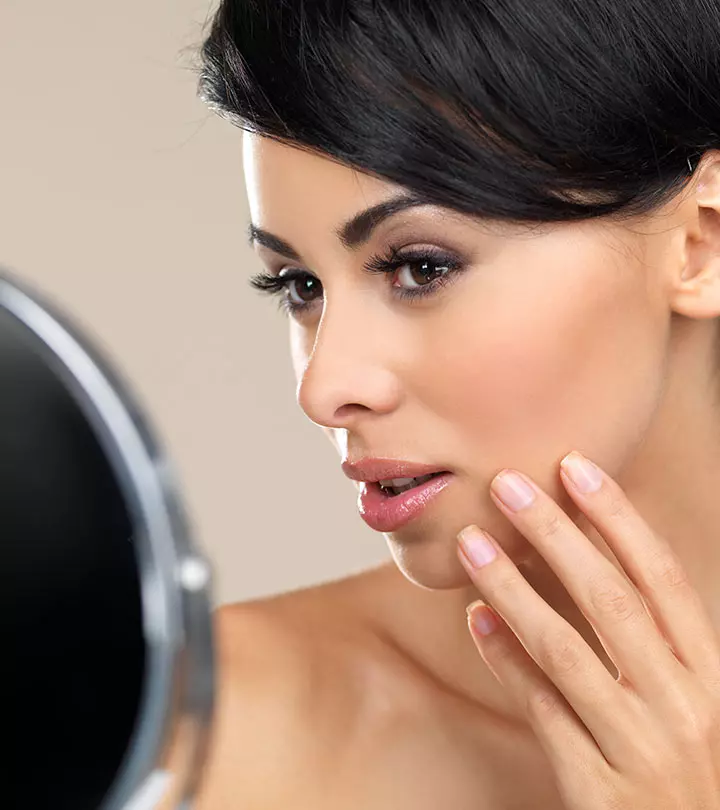
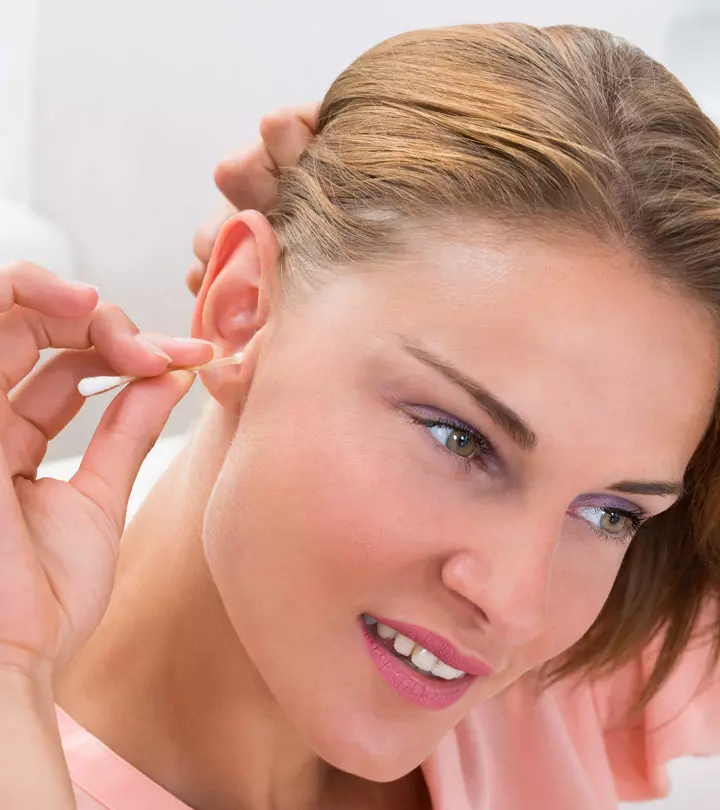
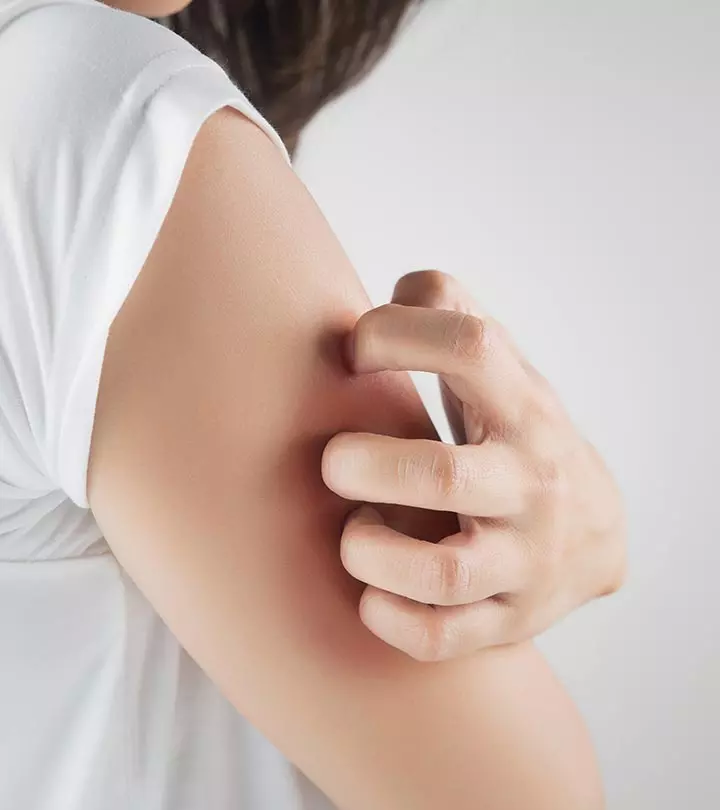
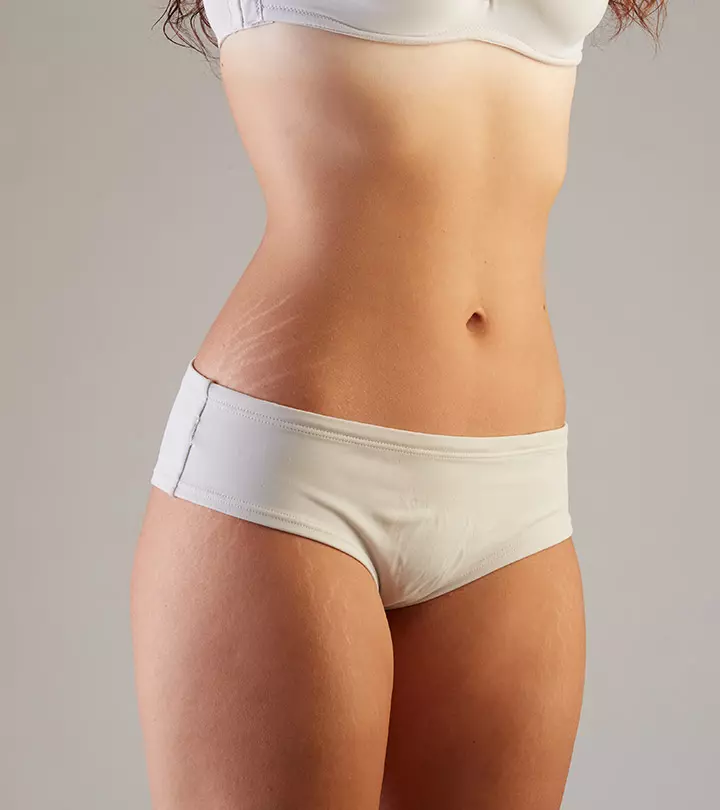
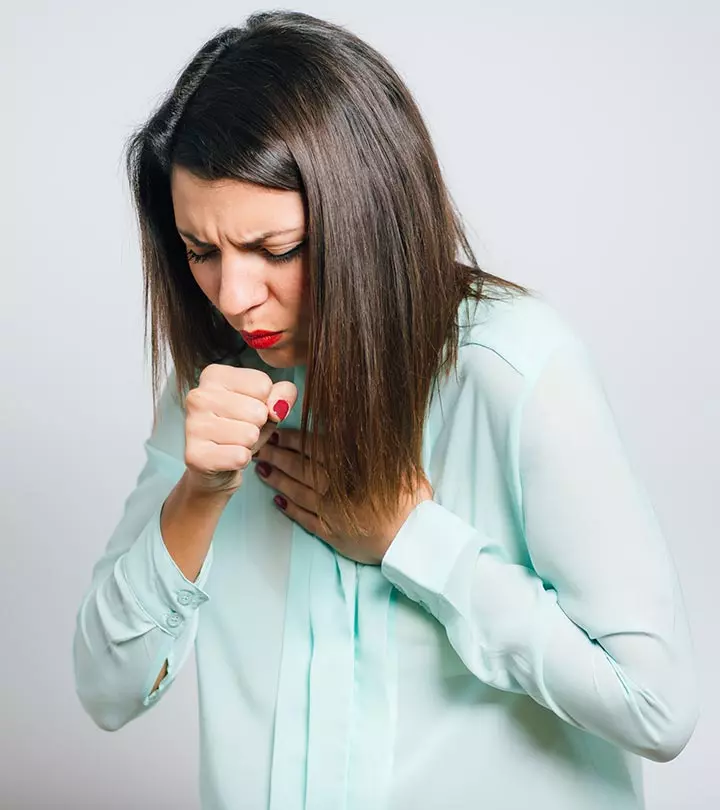
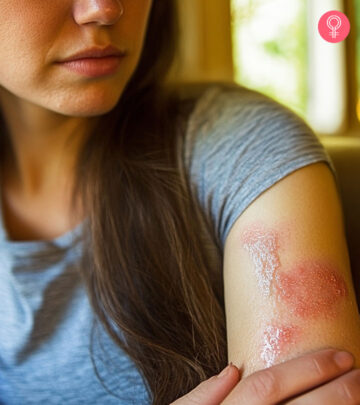
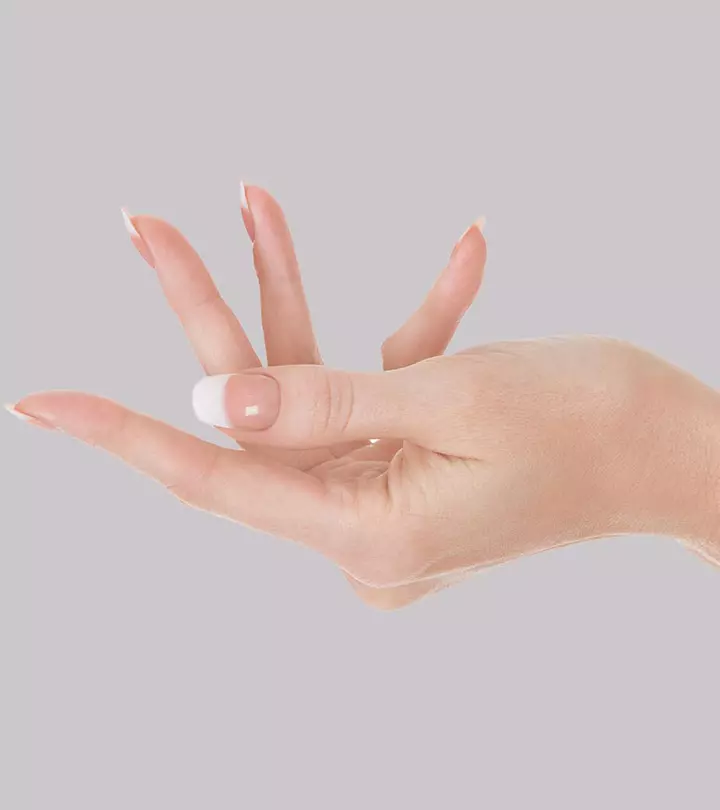
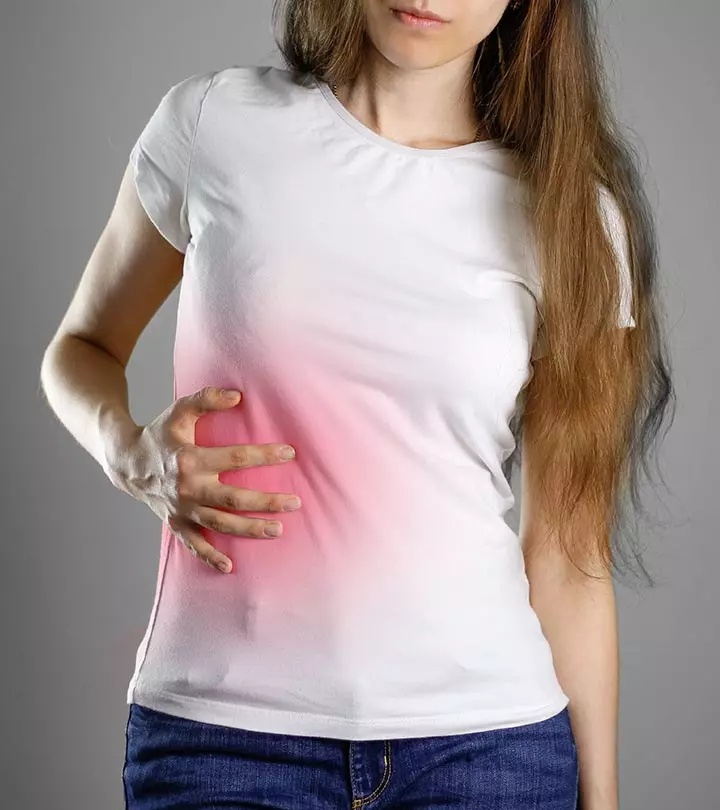

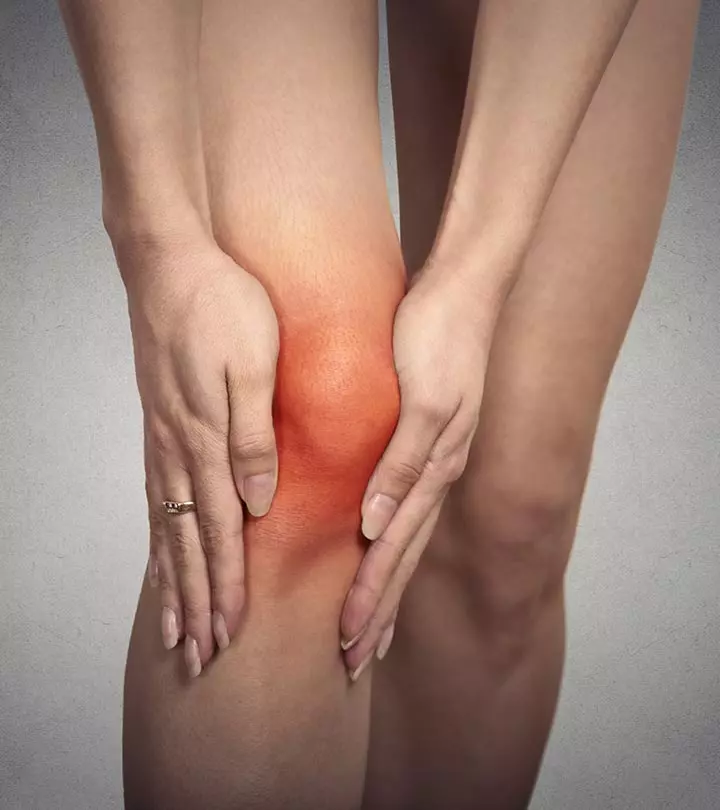

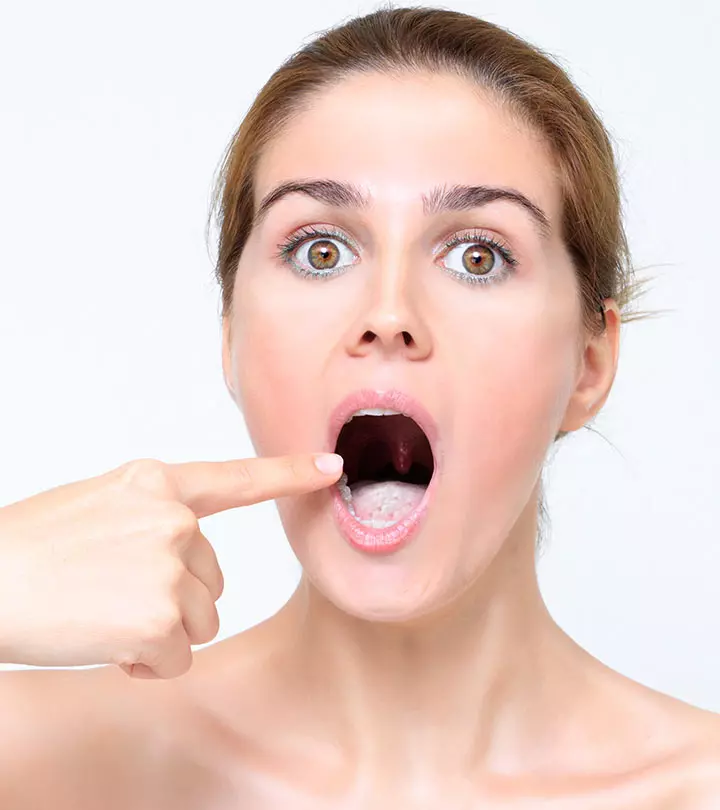
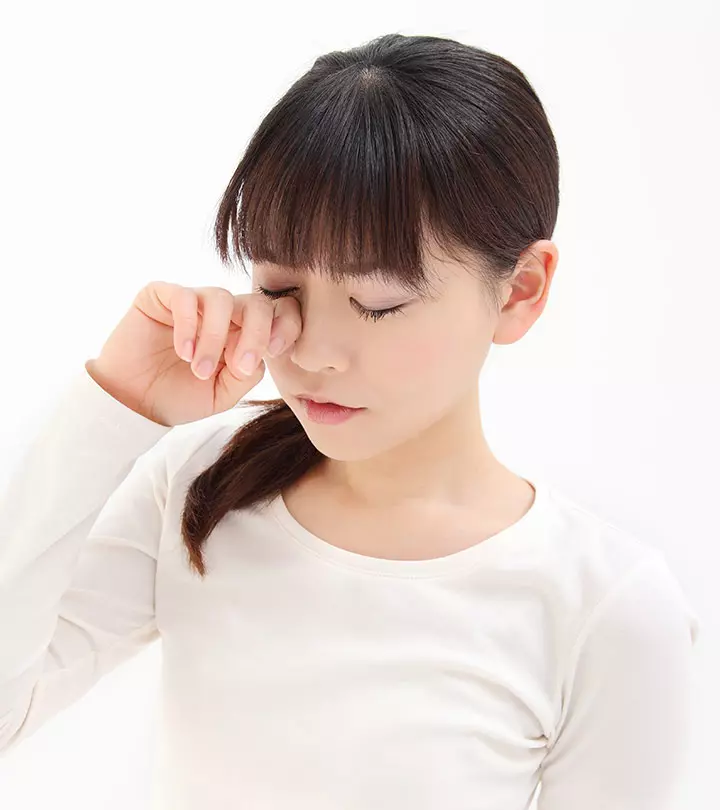

Community Experiences
Join the conversation and become a part of our empowering community! Share your stories, experiences, and insights to connect with other beauty, lifestyle, and health enthusiasts.